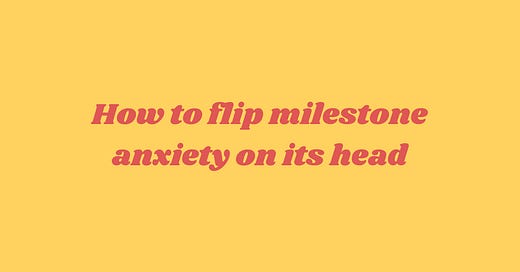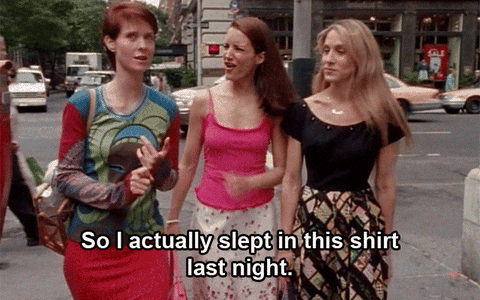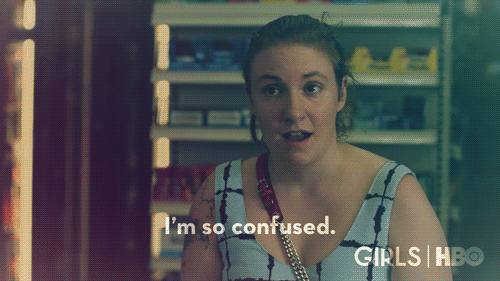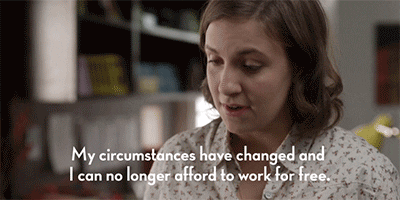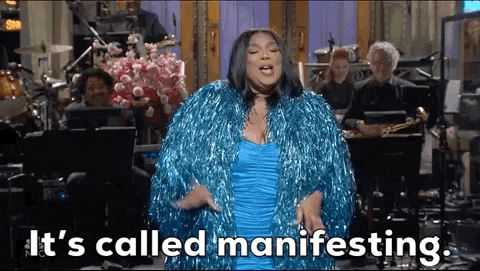Once you’re the other side of 25, there comes a time when you notice everything (and everyone) changing.
Where brunch gossip used to revolve around escapades from the night before, it’s now turned to property prices and kitchen renos. Party holidays have been replaced by destination weddings. And people who until recently struggled to look after themselves are now looking after small humans.
If these turning tides fill you with panic, you’re not alone. According to a national poll by relationship charity Relate, 77% of millennials and 83% of Gen Z experience milestone anxiety.
What is milestone anxiety?
Milestone anxiety is feeling the pressure to reach specific goals at certain stages of life. It can happen at any age, whether you’re graduating from school and deciding what to do next, to finding yourself embarking on a new chapter after retirement.
However, when you’re in your twenties and thirties, milestone anxiety hits different. That’s because, traditionally, this is the age at which people stabilise and make big, permanent decisions. We tend to spend a lot of our teens and twenties exploring—trying out different identities, relationships, careers, hobbies, cities and social circles.
As we mature (and this is a generalisation) we solidify our identity, find our purpose and “settle down”. Some of the most common “milestones” we see at this stage of life are:
Choosing a permanent place to live or buying property
Finding a partner and committing to a romantic relationship (moving in together, getting engaged, getting married)
Achieving success in our career (getting promoted, earning a good salary, turning a passion project into a business or income stream)
Starting a family
Of course, these expectations are socially constructed, and the truth is that there’s no single “correct” way to live your life—that’s for you to decide.
But that doesn’t make it any less easy to avoid milestone anxiety.
What does milestone anxiety feel like?
If you experience milestone anxiety, you probably feel stress, panic or dread about where you are in life and what’s coming next. You’re looking at those around you (friends, colleagues, family, influencers) and thinking:
“Why don’t I have that yet?”
“What’s wrong with me?”
“I wish that was me”
“I’m not good enough”
“I should be there by now”
etc.
This is your inner critic talking. The negative voice in your head that puts you down, judges you, and makes you feel bad about yourself.
Of course, there’s a flipside to milestone anxiety in that you might look at friends showing off sparkly rings/changing nappies and think “I definitely DON’T want that”. This isn’t necessarily any less anxiety-inducing—you might be thinking:
“Why don’t I want this?”
“What’s wrong with me?”
“My friends/family will judge me”
“What do I do instead?”
Why is milestone anxiety worse for my generation?
Relate’s research showed that milestone anxiety is on the rise among young people today. When you compare us with our parents’ and grandparents’ generations, 66% of over-75s and 70% of baby boomers felt the same when they were our age.
When you think about it, this makes sense for a few reasons:
The economy: inflation, energy prices, mortgage rates—it’s much harder for young people today to get on the property ladder or save for the future.
The pandemic: many of us feel like we lost two years of our lives (for some, it accelerated decisions like moving in together or having kids).
Social media: milestone anxiety is largely due to the feeling of peer pressure, so it’s no wonder we’re more sensitive to it when we’re constantly scrolling through a visual record of everyone else’s achievements.
The evolutionary psychology behind milestone anxiety
But even without these contextual factors, milestone anxiety is a completely normal, human reaction. Our brains are wired for connection and we instinctively seek to belong and fit in as a matter of survival.
In childhood, we mimic the actions and behaviours of those around us to be accepted by them, and this continues for our whole lives—it’s how we form relationships and feel secure. Because this survival strategy has worked pretty well in the history of humanity so far, our societies are built on order and convention.
The feeling that we don’t belong is often at the root of most of our psychological struggles. It generates feelings of unease, low self-worth and self-esteem, and even sadness and grief.
Is milestone anxiety a bad thing?
Milestone anxiety isn’t a clinical term, but it can feel pretty sh*t. If you notice that your mental health is really suffering, seek help from friends, family and professionals.
However, most of us will experience milestone anxiety at some point. And when you take into account the biological explanation above, it can be reassuring to know that you’re having a universal existential experience.
In fact, one way to look at milestone anxiety is that it can help you get in touch with your own goals. Realising that you also want a family one day, or that you’d rather travel the world, is a good thing in the long run, as it brings you one step closer to building the life you truly desire.
How to work through milestone anxiety
“Yeah so manifesting my dream life is all very well and good, but my inner critic still won’t shut up”. We hear you—just because you can rationalise something, it doesn’t mean you can switch off those intrusive thoughts and rollercoaster emotions.
So here are some practical tips to help you work through milestone anxiety:
Build a relationship with your inner critic.
We know that they’re sometimes the last person you want to talk to, but trust us on this one: getting to know and understand your inner critic means you can start to rewrite its narrative. Roger Taylor, co-founder of our parent company Famn, shared this advice in an article on milestone anxiety in The Independent:
“Recognise what the critic is saying to us and how harsh it is. Recognise that not everything it says to us isn’t always true, say when it says that you’re not good enough because you don’t have a baby and all your friends do, you need to acknowledge that that is not fact. Don’t accept everything.”
Assess your anxiety levels more generally.
Another piece of advice Roger gave was to take a look at your anxiety as a whole. We’re big advocates for learning how to regulate your autonomic nervous system, which controls your stress responses. A useful life hack is building a toolkit of strategies (like breathing exercises, grounding techniques and relaxing activities) that activate your parasympathetic nervous system.
This will help you stay attuned to your body and reduce stress. And when you’re in a calmer headspace, you’re better equipped to look at things objectively and stay focused on your unique path.
Practice strengthening your inner kindness.
One of the reasons our inner critic can get so loud is that we don’t have a strong counter-narrative to challenge. Enter: your inner kindness.
Building up your reserves of self-acceptance and self-compassion will increase your overall resilience. Through self-enquiry, journaling, therapy or coaching, you can develop a different life script that champions your individuality and celebrates your wins, regardless of what everyone else is doing.
Define your own milestones.
If you’re experiencing milestone anxiety, what happens if you flip it on its head and view it as a positive opportunity to reassess what you want to work towards? As we mentioned earlier, observing how you respond to other people’s milestones can be a great way to check in on your own values, interests and ambitions.
It can be really empowering to remember that you do have the freedom to set your own goals and define your own milestones; they don’t have to be the same as your best friend or the girl boss you follow on Instagram (on that subject, try to be intentional about who you follow on Instagram).
It’s particularly important here to check in the underlying motivations behind your desires and decision-making (have a read of our last post on self-care vs. self-sabotage). For example, do you want to move to the suburbs because you’ll have a better quality of life or because your parents want you to? Is the urge to book a one-way ticket to Australia because you’re up for a new adventure or because you feel left out of your friendship group?
This kind of self-enquiry takes courage and honesty, but it can be really exciting and energising. Because ultimately, you get to write the rules and decide what milestones mean to you.
We loved this list of alternative milestones that participants in Relate’s study agreed should get more recognition:
Adopting
Leaving an unhealthy relationship
Leaving your job to do something you love
Coming out as LGBTQ+
Deciding not to have children
Completing a physical challenge such as running a marathon
Buying a house with friends/ family
Deciding to stay single
Seeking therapy
Clearing your student debt
Over to you
Are there any other alternative milestones you’d add to the list above? How do you feel about milestone anxiety? We’d love to hear your perspective in the comments.
